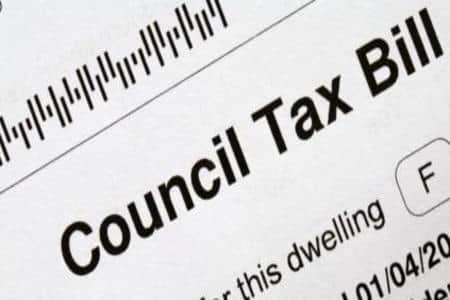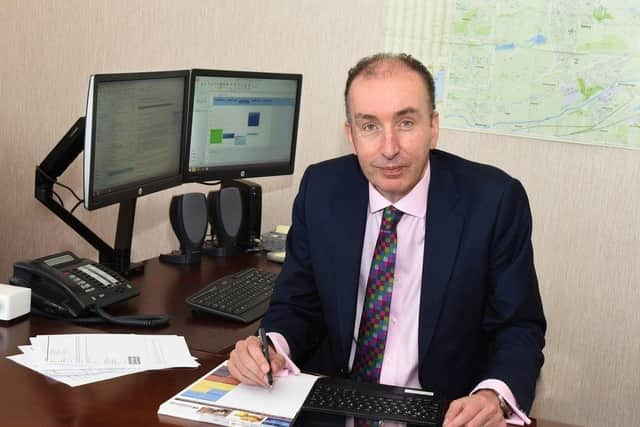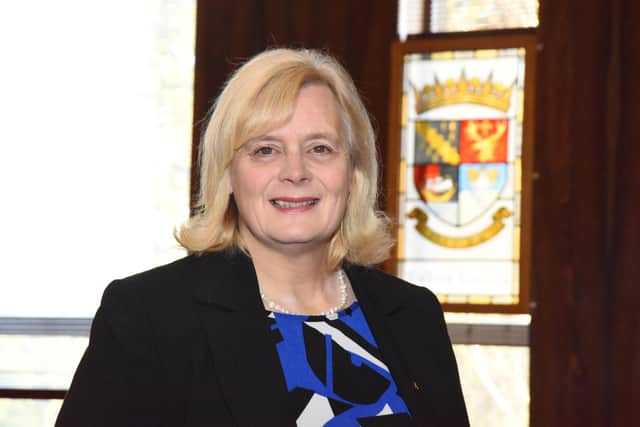Falkirk Council: Council tax will rise by seven per cent in a bid to ease financial pressures
Members of Falkirk Council met today (Wednesday) to agree their budget for 2023 to 2024, when they were warned by chief executive Kenneth Lawrie that the “fundamental mismatch” between spending and income will have to change quickly.
Over the next four years, the council needs to save £63 million in order to balance the books and councillors were told there was no alternative to cutting expenditure and raising income.
Advertisement
Hide AdAdvertisement
Hide AdCouncil leader, Councillor Cecil Meiklejohn, said it was the most challenging budget they had ever faced with added pressure coming from outside factors such as energy prices and interest rate cuts.


And she said that a Best Value review by Audit Scotland in 2020 had shown that councillors in Falkirk had not been taking difficult decisions and insisted there was no choice now.
The budget was unusual in that many of the most controversial decisions – such as charging for garden waste collection – have already been taken. Others, such as the swimming pool closures, will be decided at future council meetings.
Councillors did agree some cuts including a reduction in Christmas lighting and the number of festive trees communities will get.
The amount of cash going to the local Health and Social Care Partnership is also being reduced this year.


Crucially, however, the SNP administration’s budget includes the use of £15 million that has been made available by changing the way the council’s privately build secondary schools are paid for.
The change, approved this year by the Scottish Government, means that local authorities can now spread the cost of payments for any public-private finance projects over the length of the building’s expected life, rather than the length of any contract. The ‘technical’ change in how Falkirk Council pays for the construction of the high schools will give the council some much needed breathing space.
But councillors were warned the use of these service concessions would simply buy the council time to make the changes that were necessary.
Advertisement
Hide AdAdvertisement
Hide AdChief executive Kenneth Lawrie said: “If we don’t take the challenging decisions and rely overly on service concessions we will very quickly reach a financial cliff edge. The consequences of that will be very serious for our council and our communities.”


Mr Lawrie made clear that the council’s workforce will have to shrink but he remained hopeful that this can be done without any compulsory redundancies.
The biggest decision in front of councillors during the budget meeting was whether to raise council tax by seven per cent as officers suggested.
Falkirk currently has the fifth lowest level of council tax in Scotland and SNP and Conservative councillors voted to approve the rise in a bid to gradually reach the Scottish average over the next four years.
The band D charge for Falkirk is £1274.60, which is £72 less than the Scottish average.
Councillor Meiklejohn said: “The council tax increase is £1.74 per week but the cost of that income to us will significantly help to support services.”
The Labour group and all four Independent councillors were highly critical of “consistent under-funding” from the Scottish Government that they say is putting all councils in an impossible situation.
The Labour group leader, Councillor Anne Hannah, said that her group could not “in all conscience” support the budget.
Advertisement
Hide AdAdvertisement
Hide AdShe said: “The reason the council has an eye watering budget gap is that the Scottish Government has reduced funding to local government every year since 2007. If Labour supported this budget we would be accepting the cuts that we have tried to resist over the past nine months.
“If Labour put forward an alternative budget we would be accepting cuts that we have voted against in debate after debate. We cannot in all conscience do that.”
The four Independent councillors also each said they would not support the budget, with Councillor Brian McCabe saying they had “one hand tied behind our backs by centralised government.”
Bo’ness councillor Ann Ritchie abstained from voting although she said a seven per cent increase in council tax was “far too much for many people.”
But the Conservative group said they accepted the council needed to set a balanced budget.
The group leader, Councillor James Kerr, said: “Whether you like it or not, if the budget fails where do we go? If we reject this budget and an outside body comes in, they’re not going to give two hoots where the money is coming from. We will have no say in it – that’s why we are supporting this.”
They put forward an amendment with spending proposals of their own which were accepted by the SNP.
The Conservatives asked for a report into the future of the Royal Hotel in Slamannan. They also want to see new signs in Falkirk High Street with information about the Battle of Falkirk at a cost of around £20,000.
Advertisement
Hide AdAdvertisement
Hide AdAnd they have asked that a further £500,000 of reserves be used to fund works to allow 20mph zones to be introduced.
Councillor Meiklejohn said she was happy to accept these amendments as they are all “relevant to council priorities,” which meant the overall budget passed.
Summing up, she said: “The Labour Party want to be the party of government but not of responsibility. The nine months of cuts are only because of ten years of the previous Labour administration refusing to take difficult decisions.
“They are critical of the administration but bring nothing to the table.
“Of course we want more money for councils but the Scottish Government has a fixed budget so tell us where you want to take the money from.”
Comments
Want to join the conversation? Please or to comment on this article.